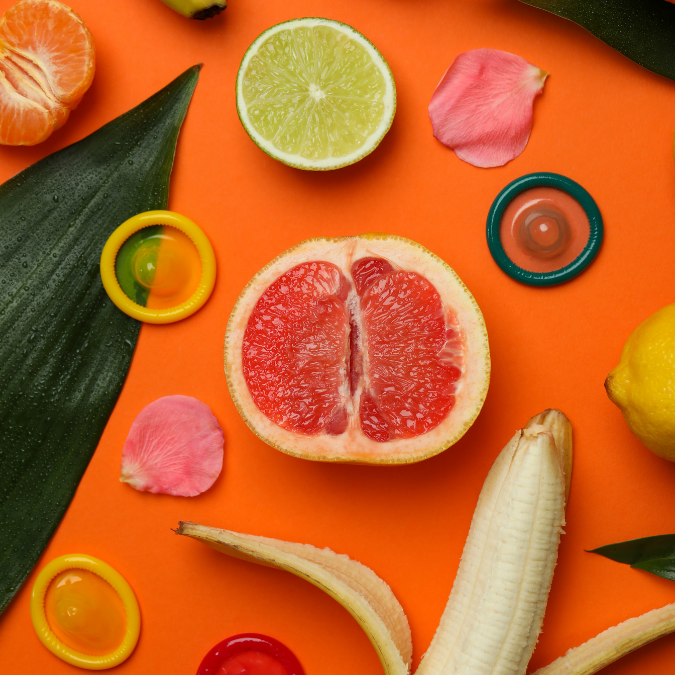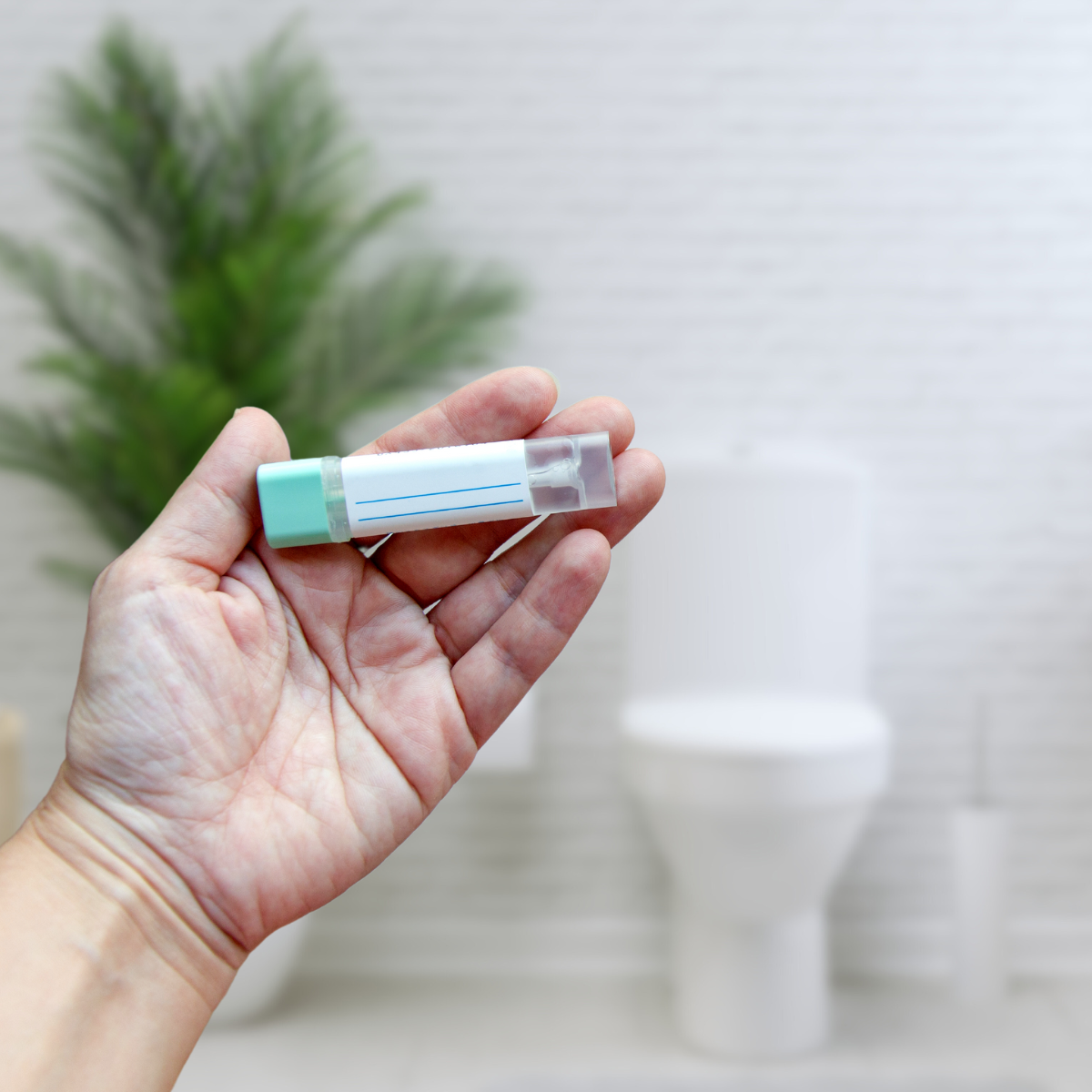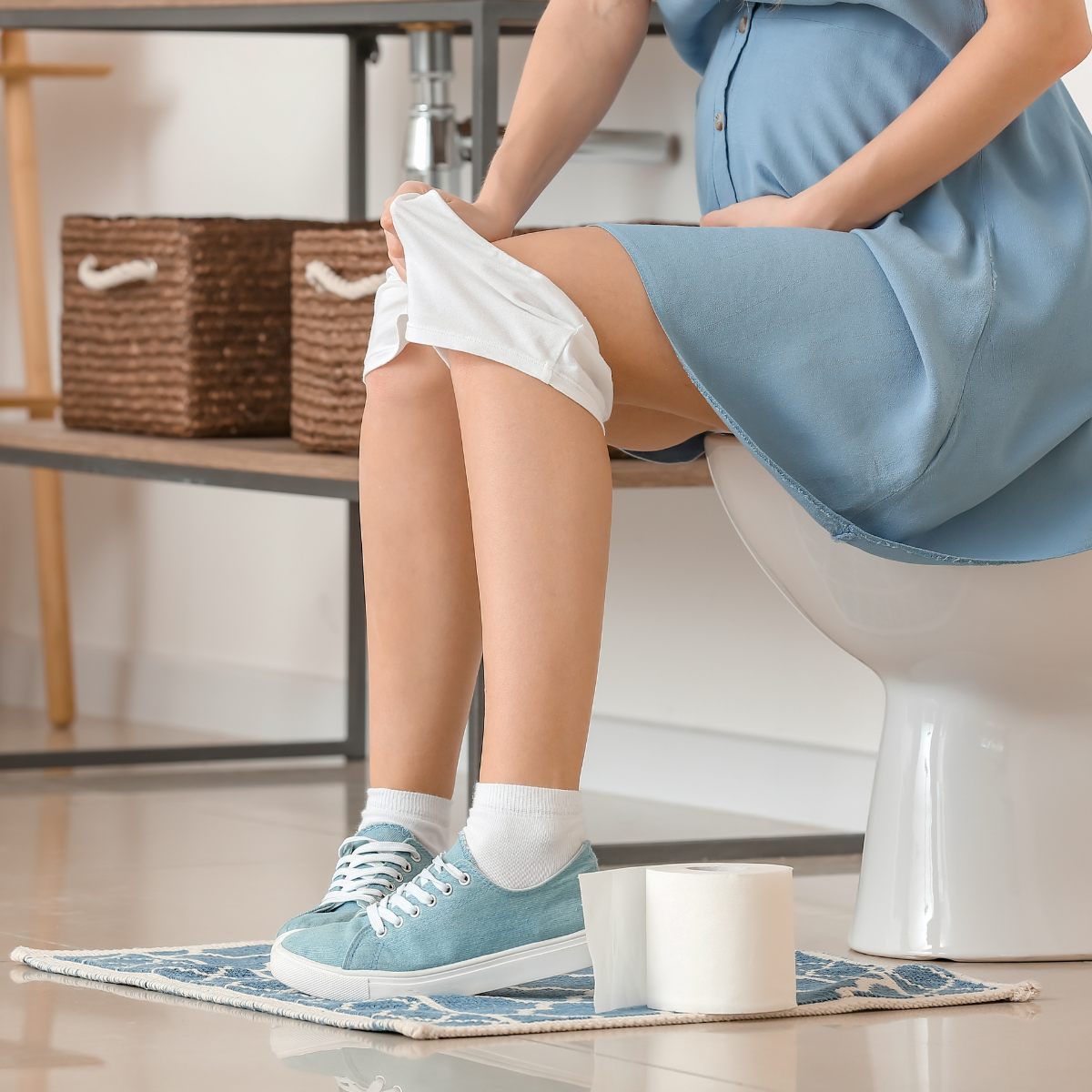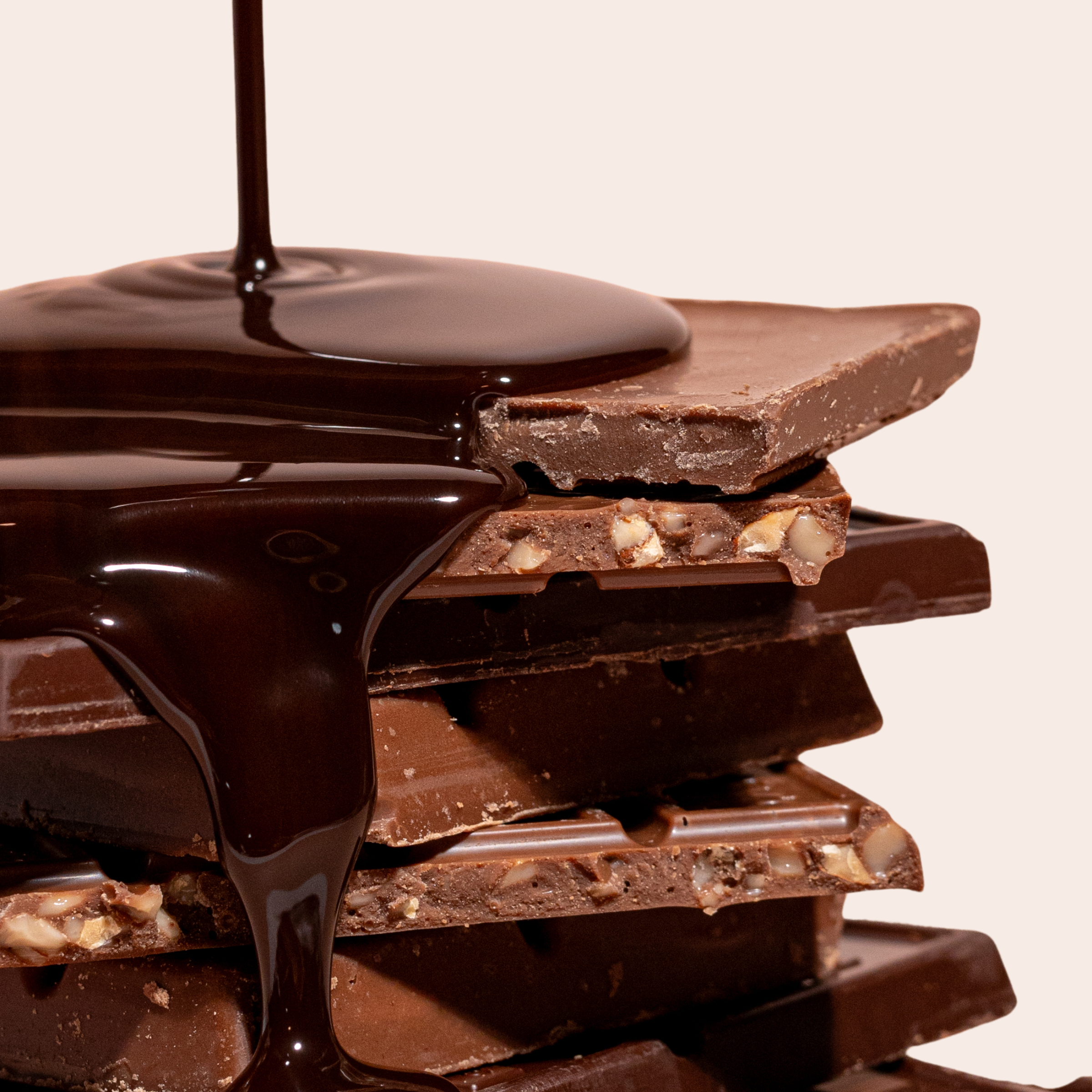Communication, Hygiene & Protection: LGBTQ+ Sexual Wellness

Communication, Hygiene & Protection: LGBTQ+ Sexual Wellness
Us Brits don’t like talking about sex much in general; it can be seen as crass, or inappropriate. Even more so, healthy intercourse between LGBTQ+ people is rarely on the tip of anyone’s tongue. Is it really that mysterious and obscure, or are there principles that transcend sexuality when ‘buttering the crumpet’ that we can learn from?
Whether you like to talk about it or not, statistics show that there’s a lot of tumbling going on between the sheets (or elsewhere) all the time! In 2018 71.9% of people aged 18-49 said they were getting freaky in the bedroom, so opening the conversation and being comfortable around the topic is sure to make for a much healthier experience. Today we’re batting for the other team and delving into best practices in LGBTQ+ sexual wellness and hygiene. We hope that tackling this, somewhat, tabooed topic will open the door to healthier conversations around sexual wellness, with some facts and practices that you might not have known about. So, strap in and get ready to have a chat about what goes on between the rainbow print sheets.

Communication
Not the oral you were expecting? And yet, good healthy lovemaking starts with communication. Both parties knowing that they’re not only being listened to but are able to vocalise what they’re comfortable with, guarantees to achieve optimal relaxation. Just do the opposite of your friend who always texts while you’re talking to them, listen.
This especially helps when you’re experimenting with the same sex, particularly if for the first time. We know what you’re thinking, surely nobody knows their way around a vagina as well as someone with a vagina, and the same goes for people with penises, right? But while you might be able to skip the pages of the erotic novel to get right down to the saucy stuff, in real life you'd better have a good honest chat before you hit the hard covers.
Let’s Marvin Gay(e) and get it on - Feeling comfortable
A survey in 2016 showed that 12.6% of women, and 2.8 % of men who identify as heterosexual had experienced same-sex sexual encounters in their lifetime. With communication and a shared understanding, these types of sexual encounters are much more enjoyable for both parties as they venture on the journey of finding out what they like and don’t like.
Communication around STIs for LGBTQ+ People
It’s recommended that every sexually active person should have an STI test between each sexual partner, once a year, or if they present symptoms.
The question is, are homosexual/bisexual people more open to talking about this with the people that help them unzip? Gay dating apps, such as Grindr, have a field where people can present their HIV status, or whether they’re on pre-exposure prophylaxis (PrEP) for more transparency when ‘hooking up’ (you won’t find that on Tinder!). PrEp is preventative medication that can be taken before sex, reducing the chance of contracting HIV. From this, they have found that Grindr users take PrEP more, and have lower rates of contracting HIV as they can take mitigating precautions by knowing their sexual partner’s status. This, naturally, brings forward an open conversation about what’s going on down there when sleeping with someone.

Hygiene
Feeling clean down there makes us feel more confident, especially when we know there’s someone else going down there too! Hygiene goes further than just STI checks and falls further into a notion of feeling clean and fresh for your 'anatomy study buddy’. This week’s lesson is all about prepping your bits and bobs for...well, bits and bobs.
Keep your flower floral - Vaginal Hygiene
Your vagina and your vulva are two different things. The vulva is the part of your genitals on the outside of your body — your labia, clitoris, vaginal opening, and the opening to the urethra (the hole you pee out of). Whereas the vagina is the internal canal that leads to the uterus. Just remember, the vagina is inside the body, the vulva is outside. Your vagina is self-cleaning, which means that there's no need to put any soaps, body washes, creams, seasonings, or salad dressings up there. Just don’t put anything up there unless you’ve been advised to by a professional, okay?
However, it was found that 1 in 5 15–49-year-old women in America partake in vaginal douching. This is a process where a water solution is inserted into the vagina and then released to flush out any debris. Douching can lead to many health problems, including problems getting pregnant, vaginal infections, and STIs.
The labia, on the other hand, can build up with oil and debris between the folds if unwashed. You can wash around the vulva with gentle soap, being careful not to get any inside the vagina as this can impact its natural pH balance. Here’s an article to help you wash your vulva. Some people also prefer to use a pH balanced substance on their vulva to make it taste different or more interesting for their partner.
Code brown, code brown! - Anal Hygiene
To douche, or not to douche, that is the question (is that how it goes? Sorry Shakespeare!). If you’re someone that partakes in anal sex, you’ll know the intricacies of keeping things clean, so you don’t end up with a ‘code brown’, or maybe you don’t really care! 58% of people receiving anal penetration said that they prefer to douche every time, and 28% said that they ‘sometimes’ take part in anal douching.
Don’t overdo-uche it though, excessive anal douching can lead to damaging the walls of the anus, here’s some tips for safe anal douching. Whether you douche or not, when taking part in anal sex (oral or penetrative), it’s important to make sure the area is spick and span, as oral-anal sex can lead to the spread of Hepatitis A or E. Coli. Cleaning with just water won’t do the trick though, be sure to use soap and warm water to make sure everything is A-Okay down there. If you got poo on your arm, would you just wash it with water? What about letting someone lick your arm afterwards?

Protection
Yes, we are talking about condoms, the marigolds of the bedroom. LGBTQ+ couples are more likely to share sex toys, so it’s important to use different condoms when switching between users to reduce the chance of spreading any infections. Spending half the price on toys sounds like a steal, but don’t slip up by stealing the other’s potential infection from them too! As well as condoms, there are also preventative measures to take when doing the do with someone with the same parts as you, including reducing the risk of spreading STIs through nicks and cuts.
Don’t let those pearly whites trip you up - why you shouldn't brush your teeth right before oral sex.
Oral sex is a big part of boinking in general, and especially for LGBTQ+ couples where penetration isn’t as accessible for them. Brushing or flossing your teeth can leave tiny cuts and ulcers on the gums , giving infections a direct entrance into the bloodstream. Even brushing your teeth comes with a risk these days, nobody is safe! To prevent this from happening, be sure to wait at least 2 hours after brushing or flossing before taking part in oral sex. If you need a freshen up, try some gentle mouth wash, a little bit of menthol can also increase stimulation during oral sex.
Keep your hands clean - can you wear acrylics during masturbation / finger play?
Some people like to keep their fingernails short so that when it comes to finger play (the act of using fingers to penetrate the vagina or anus), there’s no risk of internal nicks or cuts (we know, we felt that one too). However, acrylics can make someone feel more feminine and are also attached to many cultures across the world, many people who enjoy having long nails don’t want to sacrifice this by letting their fingertips go nude when they do too. There’s the stereotype that some lesbians remove two acrylic nails from their middle and index fingers as a statement and to make finger play safer, but this is less common than you may think.
You’ll be pleased to know that you can wear acrylic nails during finger play and masturbation, but it depends on your style and length. Obviously short nails reduce the risk of trauma to the thin lining of the vagina or anus, but as long as there are no points or sharp edges, you’re cautious, and you’re checking in with your partner, you should be fine.
Some like it rough, but not that rough - why does anal sex have a higher risk of spreading STIs?
As we mentioned before, the lining of the anus is very thin, and more likely to tear or be damaged during anal penetration. This, as we mentioned with oral nicks and cuts, can lead to direct exposure to infections. As this is something that you may not feel or see, it’s always best practice to use a condom and have an open conversation around STI status with your sexual partner. A generous use of water-based lubricants can also help reduce the risk of tears. Oil based lubricants such as lotion and moisturiser can cause friction on latex and break the condom, so it’s best to stay away from these. So no, we don’t recommend reaching for the olive oil when you’re getting frisky with that special someone.
The bottom line
It’s helpful to remember the 3 overarching points of etiquette to LGBTQ+ sexual wellness and hygiene that we have pointed out in this blog: Communication, Hygiene, and Protection. Hopefully this has helped dispel any myths, answered some questions, and showed that as it turns out, while there might be different ingredients going in the soup, the golden rules for the best recipe stay the same!
Well, there you have it, we did it! We spoke about sex. Wasn’t that hard, was it? Learn anything new? If there’s anything interesting you think we missed or anything you’d like to tell us, be sure to drop us an email at hello@wypeuk.com, or leave it in the comments if you’re comfortable! Talking with each other challenges taboos and allows us to feel liberated in our sexual identity in a healthy way!
If you’re looking for a quick clean up down there before you get down and dirty with that special someone, why not try Wype’s pH balanced, unscented, hypoallergenic cleansing gel? Buy it here.



